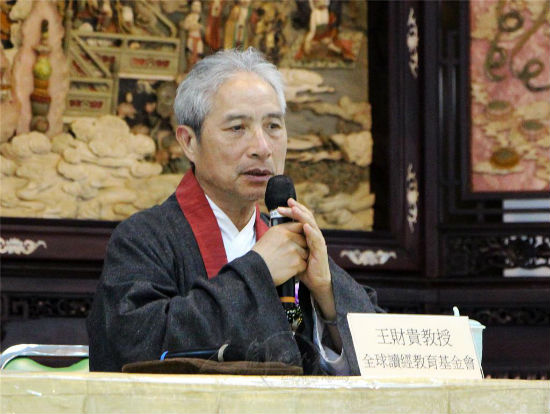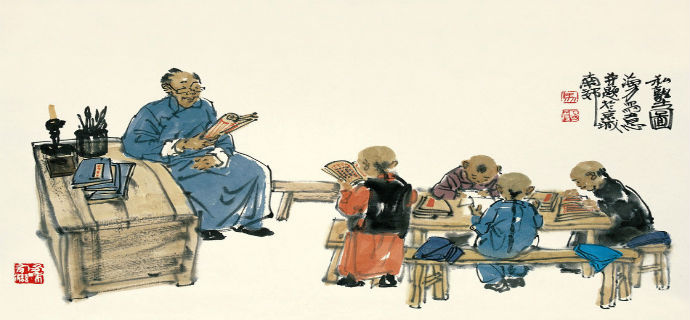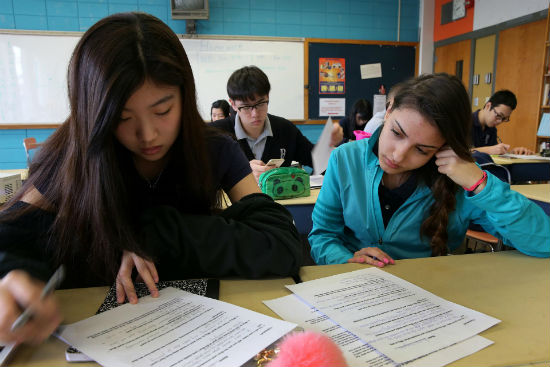Under Debate: The Rise of Classics Reciting Private Schools in China
In China, about 2000 old-style private schools are inculcating over 10,000 students with Chinese classics education, which recently invited opposing views from some experts and triggered a heated debate.

Advocator of the old-style classic education, Wang Caigui
Wang Caigui, head of Wenli School in Wenzhou, Zhejiang province, is a keen advocator of the old-style classics education. 20 years ago, he initiated a movement that aimed at cultivating a mind of wisdom and virtues among students. According to Wang, young children usually have strong memories but poor cognitive capacities, so it would be ideal for them to read and recite Chinese classics, including The Four Books (The Great Learning, The Doctrine of the Mean, The Confucian Analects, and The Works of Mencius), and Five Classics (The Book of Songs, the Book of History, The Book of Changes, The Book of Rites, and The Spring and Autumn Annals) before the age of 13. As long as the children have laid the knowledge foundation from these classics, they would naturally develop better intelligence and understanding as they grow up. Wang believes that, in this sense, the classics education can even totally replace science and general education.
Wang's ambition is to build a grand school with 10,000 students enrolled, a utopia where students can fully immerse themselves in the traditional academic life. To realise this goal, he has been thinking up alternative ways to raise 1.2 billion RMB within 10 years.
Students in Wenli School have to read about 500 classics, including Buddhist ethics, traditional Chinese medicine classics, traditional and contemporary Western literature and philosophy. Founded in 2012, the school has enrolled 33 students in total.
Controversial Mode

Students in such institutes, though having a rosy vista about their school life before entering the schools, now have their own concerns. Weiyi, one of the students, said, "I read lots of classics, but I feel isolated from the outside world. I don't get to have any opportunity to put the theory into practice. Everything is just like dangling in the air."
Learning classics by rote leaves many student in total confusion. Weisheng has familiarised himself with the original texts of Shakespeare's plays, yet he is not even able to recognise the English alphabet. Teachers do not provide instructions on interpretation or pronunciations; they just play the role of "pushing the button on the students as reading machines".
This primitive education mode also seems to deviate from its initial goal. Students, frustrated and disillusioned by what they learn, pretend to have good manners in front of their teachers, while saying bad words in private.

The exam-oriented mainstream education in China also frustrates many students
On the other hand, China's exam-oriented education system is subject to strong criticisms, especially from the middle-class parents. That is why an increasing number of the parents opt out of the mainstream education and choose to send their children to those classics-reciting schools, according to Professor Ke Xiaogang, dean of Philosophy Department at Tongji University in Shanghai.
To enrol in these schools, students have to recite classics up to 300,000 words as required. Professor He Xirong from Zhongshan University in Guangzhou said, it is just some kind of publicity stunt to reassure the parents.
However, most of the current students in the private schools are considering rejoining the mainstream education. But it is not easy. Without formal academic records in the mainstream education system,they need to take a self-taught examination for higher-education or exams designed for art schools.
Shumin studied in a classics-reciting private school for two years in Hangzhou, Jiangsu province, and was later admitted to Fudan University in Shanghai. Talking about her experience of being educated in two totally different type of schools, she explained on the contrast how a literature class she took at university truly opened her mind, "it was the first time for me to know how beautiful literature could be."
Source: uk.china-info24.com
- Developing Eco-industry to Curb Desertification
- Haixi: Industrial Upgrading through Development of a Circular Economy
- How China's Silicon Valley is Developing Virtual Reality
- Agricultural Supply-side Reform on the Loess Plateau
- Haixi: Pioneer of a Workable Plan for Ecological, Economic and Social Development
